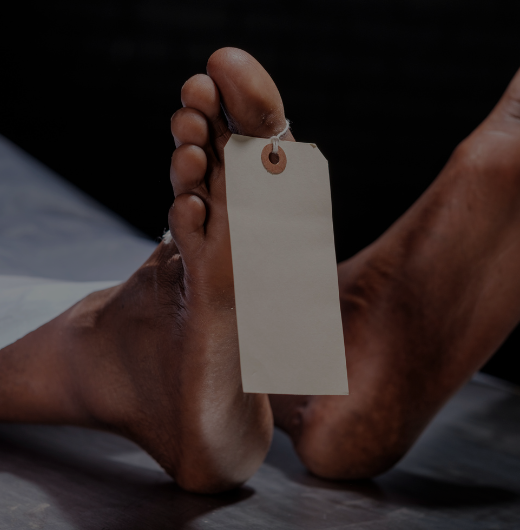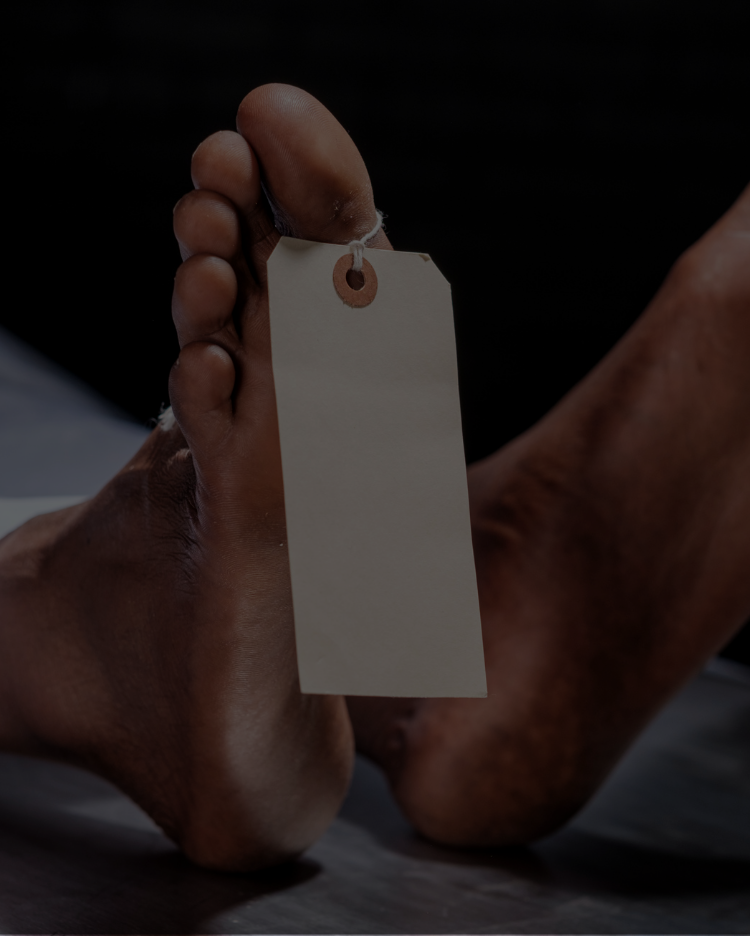Wrongful death occurs when someone dies due to another person’s negligence. It can involve accidents, impaired driving, or other preventable incidents, and family members can pursue compensation for their loss.
Wrongful Death and the Stages of Grief
As a wrongful death law firm, we understand the overwhelming grief families feel when someone they love is unexpectedly taken from them due to negligence. While we all eventually confront our own mortality, the sudden loss of a loved one can leave us unprepared, creating emotional and practical challenges that are hard to process.
Grieving a Loved One’s Sudden Loss
If you’ve lost a loved one unexpectedly in a wrongful death case, you may find that grief affects you in ways you never anticipated. You’re not just grieving the deceased person but you’re also grieving for all the moments, plans, and relationships that will never happen. This loss extends beyond the person’s death, touching all aspects of your life, from your future to your sense of self.
The Emotional Impact of a Wrongful Death
You grieve for the time you’ll never spend with your loved one.
You mourn the love lost, the plans that will never be realized, and the absence that now fills your life.
You grieve for the emotional impact on your children who have lost their parent.
Or if your child has passed, you feel the deep sorrow of that unimaginable loss.
The grief is not just about the death, it’s about everything that’s left behind, from your future without them to the life you had planned but will now live without their presence.
The Range of Emotions After a Wrongful Death
When a loved one dies unexpectedly, especially due to another’s negligence resulting in a pedestrian, bicycle or motorcycle accident, the emotional toll is often immediate and profound. You may feel everything from shock to intense sadness, anger, regret, and, over time, acceptance.
Why did this wrongful death happen?
Why was my loved one taken?
Why was the death not prevented?
These questions often flood the minds of family members in the wake of a wrongful death action. If your loved one was killed due to impaired driving, distracted driving, or another preventable accident, these questions can be consuming:
What was the driver drinking?
How much had they consumed?
Who were they texting during the accident?
Why was that text so urgent?
These questions are common in the wake of wrongful death lawsuits, as families seek answers amidst overwhelming grief and anger. The emotional complexity of these situations is one of the hardest things to process.


Dealing with Grief After an Unexpected and Sudden Death
The sudden death of a loved one is an emotional burden that can feel unbearable. The pain of knowing that you will never see your loved one again, that they are gone forever, can feel like an overwhelming force.
This sorrow can feel like a heavy weight, crushing your ability to breathe, let alone process life without them. Even though it’s normal to feel as if you won’t survive the grief, know that this intense sadness is part of the healing process.
The Challenge of Sudden Loss
The wrongful death of a loved one is especially challenging because there was no time to prepare. The death came suddenly, without warning, and the emotional shock can feel like it’s too much to bear.
This shock can lead to intense anger, feelings of helplessness, and anxiety. Studies have shown that the unexpected death of a loved one often elevates symptoms of grief and other mental health challenges.
The grieving process is unique for everyone. Each person processes loss differently, and there is no right or wrong way to grieve. It’s important to give yourself space and time to feel whatever emotions arise, even the hardest ones, and to acknowledge the reality of your loss.
If you’ve lost a loved one due to negligence, you may be left with many questions about the future:
- How will I manage alone?
- How will I pay the bills?
- How do I deal with the funeral expenses and estate issues?
- How will I manage day-to-day life without them?
These questions are natural, but you don’t have to face them alone. You deserve justice, and wrongful death lawyers can help you navigate this challenging time by securing the compensation and legal support you need to move forward.
Wrongful Death and the 7 Stages of Grief
The emotional journey following the unexpected loss of a loved one can feel like a long, winding road with no clear end. Grief is not linear, and there is no single “right way” to grieve.
Sigmund Freud first theorized that grief work involves breaking ties with the deceased, adjusting to new life circumstances, and forming new relationships. His model was a starting point for understanding how grief evolves over time.
However, it was Dr. Elisabeth Kübler-Ross, a Swiss-American psychiatrist, who later expanded this idea into the Kübler-Ross model, which focuses on five stages of grief: shock, denial, anger, bargaining, and depression. While initially developed for people with terminal illness, these stages of grief have been widely adapted to understand the loss of any loved one.
For some, these stages may occur in a fluid manner, and not everyone will experience all of them. It’s also important to note that the seven stages of grief model includes some stages beyond the initial five.
Grief doesn’t follow a strict timeline. The pain of losing someone is overwhelming, and navigating the grief journey will be unique to each individual. However, understanding these stages and knowing that they are part of the process can help you cope as you work through your feelings.
Stage One: Shock
The initial reaction to wrongful death is often shock. You may feel numb or disconnected from reality, unable to process the emotional weight of what’s just happened. This numbness is a natural coping mechanism, allowing you to deal with what is happening at a pace your mind can handle.
Stage Two: Denial
Denial often follows shock. You may find yourself unable to accept the reality of the death. The sudden absence of a loved one can create a void that feels impossible to fill. However, denial can be part of the grieving process, helping you slowly begin to confront the harsh truth of your loss.
Stage Four: Anger
Anger can surface as you process your grief. When you’ve lost someone to a wrongful death, anger often emerges, especially when you feel that the death could have been prevented. You may feel angry at the responsible party, or even at yourself for not being able to stop the wrongful death.
Stage Five: Bargaining
During this stage, people often try to bargain, hoping to reverse the wrongful death. You may find yourself making promises or trying to negotiate with a higher power, wishing you could go back in time and change the circumstances leading to the loss.
Stage Six: Depression
As the reality of the death sets in, depression is common. You may feel isolated, overwhelmed, and profoundly sad. The grief can feel like a heavy burden, and the future may seem bleak without your loved one by your side. This stage is painful, but it is also part of the process of emotional recovery.
Stage Seven: Acceptance
Acceptance doesn’t mean forgetting your loved one or abandoning the cause for justice. Instead, it marks the point when you begin to adjust to a new reality without your loved one. You may find peace knowing that life will go on, and you can now carry your memories with you as you move forward.
The Wrongful Death Was Not Your Fault
It’s essential to remind yourself that wrongful death was not your fault. Guilt is a common feeling after such a devastating loss, but it is crucial not to blame yourself.
You did everything you could to help and protect your loved one. The loss of a loved one is never something anyone can predict or control, and turning against yourself will only prolong the pain of grief.
Lalande Personal Injury Lawyers definitely deserve their 5 stars. Many thanks to Matt and Heather, who took over our wrongful death claim after we discovered our original lawyer had done almost nothing on our claim in nearly two years. Due to their diligent efforts, our claim has now been concluded successfully and satisfactorily. We regret now that we had not considered the reviews of former clients when first choosing our original lawyer. It would have saved us so much stress and time if we had believed the reviews and just made Lalande Personal Injury Lawyers our first choice – Annette Hamilton
Lean on Loved Ones for Support
Throughout the grieving process, the love and support of friends and family can provide the strength needed to carry on. While no one can replace your loved one, the support from others can be a lifeline as you navigate through this difficult time.
Seeking Justice After a Wrongful Death
Grief is a process, not a task. The support you receive during this time is crucial for your healing. While the circumstances of the wrongful death may feel overwhelming, it’s important to remember that you don’t have to face this journey alone. The legal process is one part of your recovery, and with the right support, you can navigate it more easily.
Wrongful death claims can provide vital financial relief as you rebuild your life. If you’ve lost a loved one in a pedestrian accident, motorcycle accident, car accident, or any case involving wrongful death, understanding your legal rights can help you secure compensation for funeral expenses, lost income, and emotional distress.
Legal Rights and Compensation
During this challenging time, it’s important to understand the potential compensation available to you. In Ontario, close family members can file a wrongful death claim and seek damages for loss of care, guidance, and companionship.
You may also be entitled to compensation for economic losses, such as dependency claims, which can help support your family as you cope with this loss. As part of the rebuilding process, you will likely need financial assistance to get back on your feet.
There is no amount of money that can fully replace your loved one, but obtaining justice and compensation can help ease the financial burden during this difficult time. It can protect you financially during your mourning period and beyond.
For example, if a husband passes away, his wife or partner may claim damages for loss of services and loss of family income. The survivor is also entitled to claim lost income that their spouse or partner would have contributed to the family unit until their expected retirement.
Additionally, housekeeping and other services can be claimed to assist survivors when a loved one is taken unexpectedly. Though the legal process can feel daunting, you are not alone. The guidance you receive can help you focus on your family’s healing while we handle the legal complexities.
Article FAQ
Grief after a wrongful death follows a unique and personal process. The stages of grief, including shock, denial, anger, and depression, can help explain the emotional challenges faced by loved ones.
Coping with sudden loss involves acknowledging your emotions and understanding that grief can take many forms. Seeking support from loved ones and professional help can be crucial for emotional recovery.
After a wrongful death, close family members have the right to file a claim for compensation. This can include damages for funeral expenses, loss of income, and emotional distress.
Yes, emotional distress is a valid claim in wrongful death cases. Compensation can be sought for the pain and emotional toll caused by the loss of your loved one.


